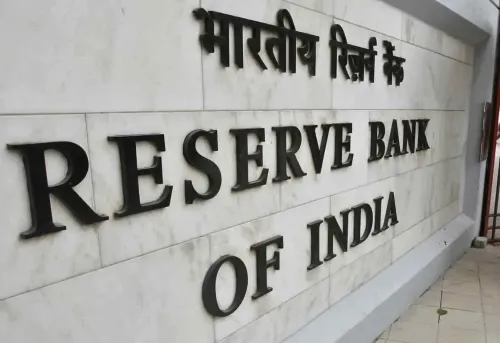Are Gold and Silver Prices Rising on MCX Due to a Weaker US Dollar?

Synopsis
Key Takeaways
- Gold prices rose on MCX due to a weaker US dollar.
- Spot market demand remained strong.
- Traders expect a 25-basis-point rate cut in October.
- Gold reached record highs recently.
- Geopolitical tensions continue to influence market dynamics.
Mumbai, Oct 10 (NationPress) The prices of gold and silver experienced an uptick on the Multi Commodity Exchange (MCX) on Friday, driven by a weaker US dollar and positive global indicators.
Consistent demand in the spot market also played a role in maintaining the stability of these precious metals.
On the MCX, gold December futures were observed trading 0.38 percent higher at Rs 1,20,951 per 10 grams, while silver December futures remained nearly unchanged during the same period.
The US dollar index fell by over 0.20 percent during the trading session, which made gold more affordable for buyers with other currencies.
Given that gold is valued in dollars, any depreciation of the US currency generally leads to increased global demand.
In the prior session, gold prices reached an astonishing high of Rs 1,23,677 per 10 grams, while silver peaked at Rs 1,53,388 per kg.
Market analysts suggest that gold prices are on a robust upward trajectory due to ongoing global economic and political uncertainties, particularly in the US.
Speculations regarding a potential interest rate cut by the US Federal Reserve have further enhanced investor confidence.
Reports indicate that traders anticipate a 25-basis-point rate cut in October, with a 95 percent likelihood, and another similar reduction in December, with an 82 percent probability.
In the meantime, US gold futures are poised for gains for the eighth consecutive week, fueled by expectations of a Fed rate cut, political turmoil in Japan and France, as well as the ongoing government shutdown in the United States.
“Gold dipped below $4,000/oz after briefly exceeding that threshold, marking its most significant drop in two months,” stated market experts.
“Profit-taking and a stronger dollar countered safe-haven demand stemming from the shutdown, coupled with fiscal anxieties in Japan and France's political turmoil. A ceasefire in Gaza between Hamas and Israel also diminished safe-haven inflows,” they elaborated.
Oil prices fell 1.6 percent to approximately $65/bbl due to lowered Middle Eastern supply risks following the Gaza ceasefire announcement.
“Increased US inventories, according to EIA data, added further downward pressure,” analysts concluded.










